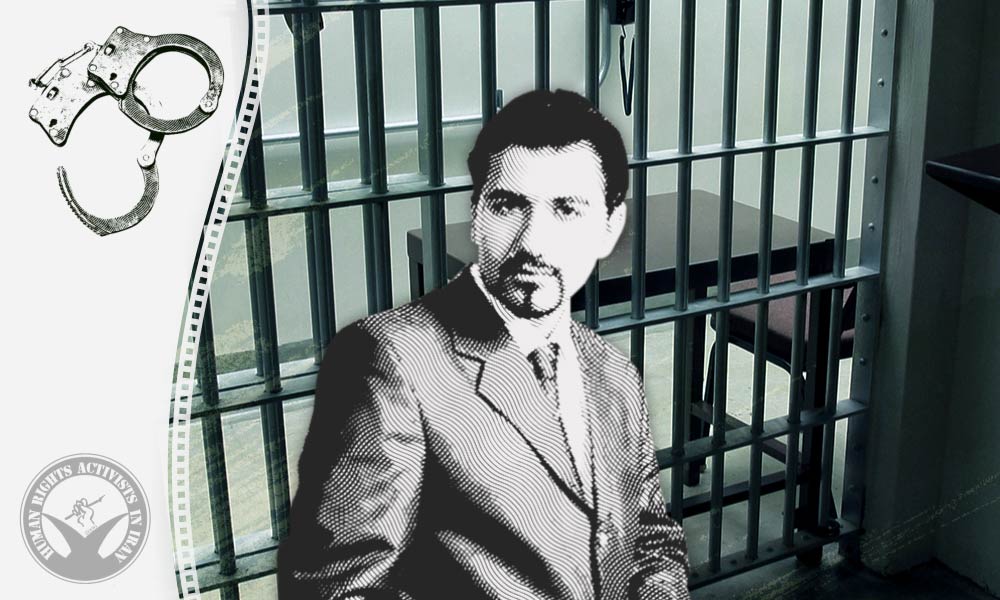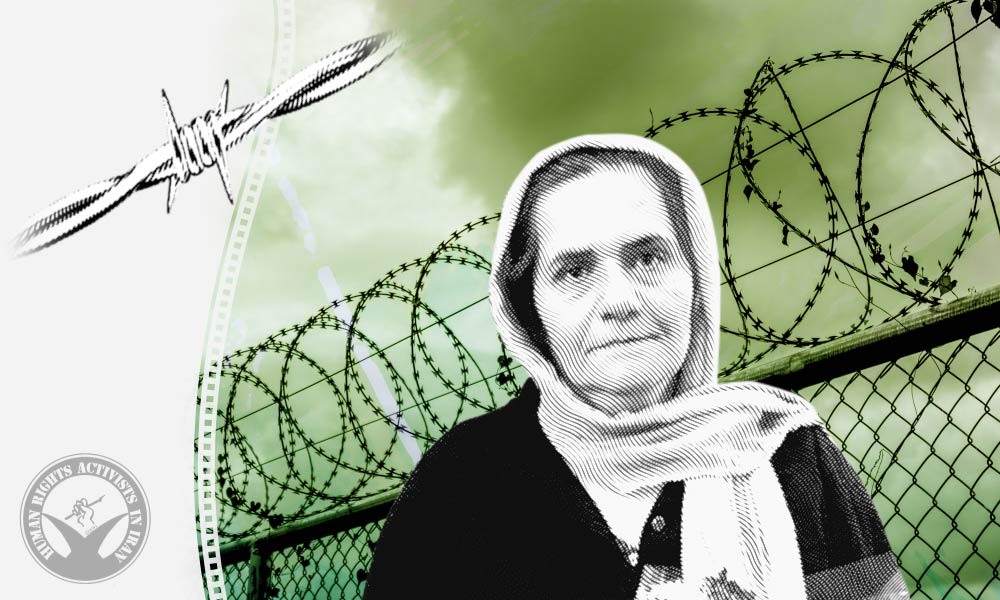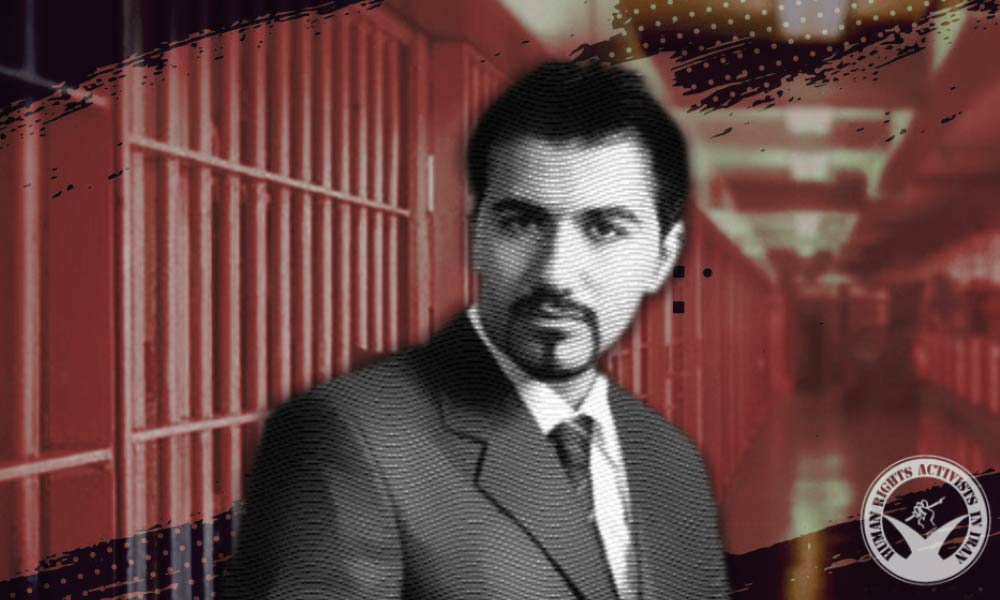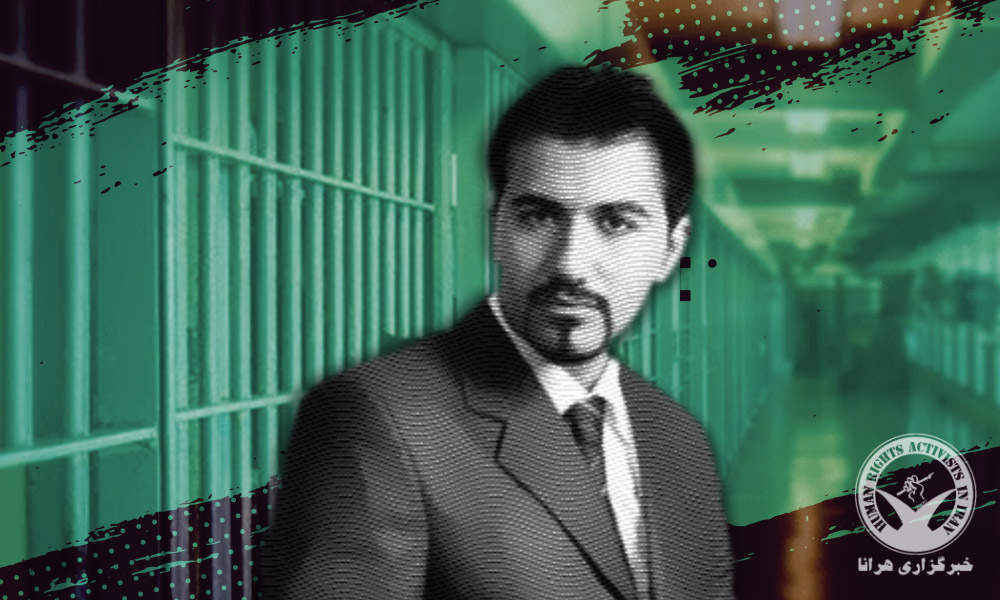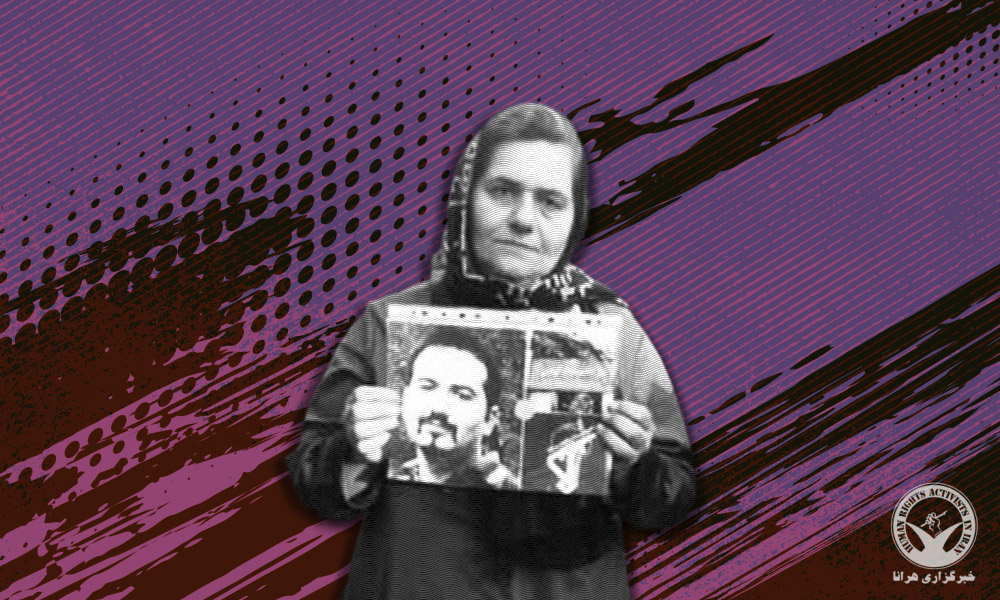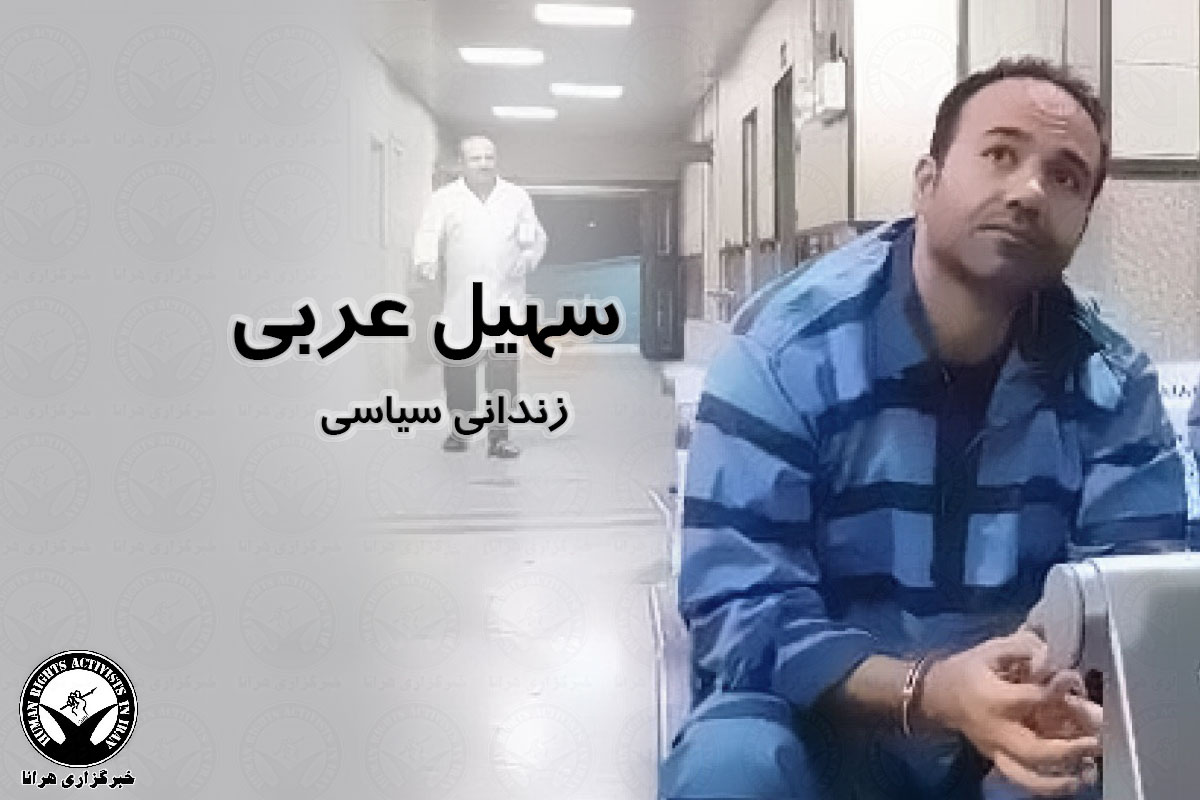This report sheds light on the situation of 27 political prisoners in Rajai Shahr Prison. Some of these prisoners are suffering from poor health conditions due to lengthy imprisonment or being beaten in detention.
Rajai Shahr Prison, previously known as Gohardasht Prison, is located in Karaj City in Alborz Province. Although the prison is built for housing the inmates convicted of violent crimes, for years it has been used by security forces as an exile prison for political and prisoners of conscience.
According to HRANA, the news agency of Human Rights Activists, Rajai Shahr Prison, like many other prisons of the country, has long failed to provide inmates with adequate medical treatment.
Rajai Shahr Prison is composed of 10 wards with three salons for each ward. There are two types of salons in each ward.
Salon type 1: In the ’80s, the cells of this salon were used as solitary confinement. This salon contains 30-35 small size cells in each of which two or three inmates are housed.
Salon type 2: These Salons are composed of 15 large rooms in each of which 5 to 7 inmates are held. In each salon, there are three toilets, three bathrooms and a room to be used as a shared kitchen.
The Canteen (prison commissary) of the prison is run by the companies affiliated with the Prisons and Security and Corrective Measures Organization. The store sells products that are marked up 10 to 20 percent. Last year, prices decreased somewhat due to complaints from inmates, but after a while, the store increased the prices again. Products not available in the Canteen are available only on written request, which must be approved by the head of the prison.
Despite being classified as a jailhouse for housing the inmates convicted of violent crimes, Rajai Shahr Prison has additionally been used for a high number of political prisoners. Considering the long history of violence against political prisoners and prisoners of conscience, the monitoring of this infamous prison by human rights activists is of great importance.
It is worth mentioning that along with political prisoners held in Salon No. 10, there is a salon allocated to Sunni-faith prisoners, who mostly are imprisoned for national-security-related charges. HRANA is working on a report about their latest situation as well.
Currently, 24 political prisoners are housed in Salon No. 10 in Rajaie Shahr Prison. The latest updated list of these prisoners goes as follows:
1. Saeed Masouri, arrested on January 8, 2001, on a charge of “enmity against God (Moharebeh) through membership in The People’s Mujahedin Organization of Iran”. In 2003, the Revolutionary Court in Tehran sentenced him to the death penalty, which later was reduced to life imprisonment. Dr. Saeed Masouri was born in 1965. He is serving the twenty-first year of his sentence.
2. Afshin Baymani, arrested on September 5, 2000, on a charge of “enmity against God (Moharebeh) through collaboration with The People’s Mujahedin Organization of Iran”. The Revolutionary Court in Tehran sentenced him to death which later was reduced to life imprisonment. Afshin Baymani is now serving the twenty-second year of his sentence.
3. Motalleb Ahmadian, arrested on October 5, 2010, on a charge of “membership in one of opposition political groups”. He has sentenced to 30 years imprisonment by the Revolutionary Court.
4. Hamzeh Savari was arrested on September 2, 2005, on the charge of ” enmity against God (Moharebeh) and acting against national security”. The Revolutionary Court of Ahvaz sentenced him to capital punishment, which later was reduced to life imprisonment. He was 16 years old at the time of arrest and currently he is serving the seventeenth year of his prison sentence.
5. Mohammad Ali (Piruz) Mansouri, arrested in September 2007, on a charge of “enmity against God (Moharebeh) through advocacy for The People’s Mujahedin Organization of Iran”. The Revolutionary Court of Tehran sentenced him to 20 years imprisonment. Following his heart attack, on September 9, 2021, he was granted furlough for the first time after fourteen years.
6. Hassan Sadeghi, arrested on January 28, 2013, on a charge of “enmity against God (Moharebeh) through advocacy for The People’s Mujahedin Organization of Iran “. The Revolutionary Court of Tehran sentenced him to 15 years imprisonment and the confiscation of his property (an apartment and a store). He is 58 years old and serving the ninth year of his sentence. Also, he had been spending in prison from 1981 to 1987.
7. Abolghasem Fouladvand, arrested in 2031 on a charge of “enmity against God (Moharebeh) through advocacy for The People’s Mujahedin Organization of Iran”. The Revolutionary Court sentenced him to 15 years imprisonment. He is 59 years old and currently serving the eighth year of his sentence.
8. Soheil Arabi, arrested on November 7, 2013, on charges of ” blasphemy”, “propaganda against the regime”, “offensive statements against the supreme leader of Iran”. In his first case, he was sentenced to five years imprisonment. For the second case, he was sentenced to two years imprisonment, two years exile in Borazjan and paying a fine for 4 million tomans, on the charge of “spreading lies in the purpose to disturbing public opinions and the propaganda against the regime” and one year and eight months on the charge of ” destruction of state property”. In addition, for another new case, he has been sentenced to two years imprisonment, paying a fine, being banned from leaving the country and once every three times mandatory appearance at the Supervision and Follow-up office of Judiciary by Branch 26 of Tehran’s revolutionary court.
9. Saeed Eghbali, arrested on February 1, 2018, on a charge of “assembly and collusion in purpose to act against national security and propaganda against the regime.” The Revolutionary Court sentenced him to six years in prison, which was upheld on appeal. Currently, he is serving the second year of his prison sentence.
10. Behnam Moosivand, arrested on February 1, 2018, on a charge of “assembly and collusion in purpose to act against national security and propaganda against the regime.” The Revolutionary Court sentenced him to six years in prison. The court of appeal upheld the sentence. Currently, he is serving the second year of his prison sentence.
11. Reza Mohammad-Hosseini, arrested in May 2019, on charges of ” assembly and collusion, offensive statements against the supreme leader of Iran, illegal border crossing, illegally entering the county, disobeying the orders of the agents.” The Revolutionary Court sentenced him to 16 years and 6 months imprisonment, which was upheld on appeal. While he was serving his term in prison, in a new case he was sentenced to flogging with 50 lashes on the charge of “offensive statements against the on-duty-government officer”. He is serving the third year of his sentence.
12. Mehdi Meskin Navaz, arrested on May 5, 2019, on charges of “assembly and collusion, acting against national security, offensive statements against the supreme leader of Iran”. The Revolutionary Court sentenced him to 13 years imprisonment and two years of compulsory residency in Ghahraj city in Kerman Province and prohibition from membership in political parties and groups. Currently, he is serving the third year of his sentence. As of this writing, Meskin Navaz has been transferred to the quarantine section after testing positive for Covid-19.
13. HooshangRezaie, arrested in 2010 on a charge of “membership in Komola (Kurdistan’s Organization of the Communist Party of Iran), spying, murder and adultery.” The Revolutionary Court of Tehran sentenced him to death which was later reduced to 15 years imprisonment. Hooshang Rezaie was transferred to the quarantine section after testing positive for Covid-19.
14. Ahad Barzegar, arrested in 2019 on charges of “advocacy for The People’s Mujahedin Organization of Iran”. The Revolutionary Court of Tehran sentenced him to six years imprisonment. According to Article 134 of the Islamic Penal Code, the severest enforceable punishment for this charge is only five years. He is serving the second year of his sentence. He has also been imprisoned in the ’80s for political-related charges.
15. Ali Eshagh, arrested on November 21, 2019, and sentenced to 5 years imprisonment on a charge of “membership in Fedaian Organisation (Minority)”. He was born in 1950. He had also been spending in prison from 1983 to 1989 for the same charge.
16. Arash Nasri, arrested on December 19, 2019, on charges of “membership in Komola (Kurdistan’s Organization of the Communist Party of Iran) and Khabat (The Organization of the Iranian Kurdistan Struggle), illegal border crossing, illegally entering the country, holding illegal firearms”. Currently, he is waiting for his trial. These accusations are based on the publication of two photos on her personal Instagram account with the clothes of the mentioned groups.
17. Iraj Hatami, arrested on October 18, 2010, and sentenced to 10 years imprisonment on the charge of spying for the U.S.A. He had been working in Iran’s Ministry of Defense, from 1991 to 2004. Since two years and three months of his detention period in the military Detention Center has not been subtracted from his sentence term, he is still in prison. To protest, in June of this year, he went on a hunger strike.
18. Arsham (Mahmood) Rezaei, arrested on January 7, 2019, on charges of “propaganda against the regime, assembly and collusion to act against national security, offensive statements against the supreme leader of Iran.” The Revolutionary Court sentenced him to eight years and six months imprisonment, which was upheld by the appellate court. According to article 134 of Iran’s penal code, five years as the severest punishment is enforceable for the above-mentioned charges. He is serving the first year of his sentence. Recently, he has been transferred to the quarantine section of Rajai Shahr Prison in Karaj after testing positive for COVID-19.
19. Nasrollah Lashni, arrested in 2014 on charges of “assembly and collusion to act against national security and propaganda against the regime.” The Revolutionary Court sentenced him to six years imprisonment and two years prohibition from political activities. This verdict was upheld by the appellate court. In October 2020, as punishment for not returning to prison after a furlough, he was sentenced to flogging of 40 lashes, which was reduced to 30. In addition, he has two open cases with the charges of “illegal border crossing” and “membership in one of opposition political parties”.
20. Ali Musa-Nejad Farkoosh, arrested on January 10, 2019, on charges of “assembly and collusion to commit a crime and act against national security, offensive statements against current and former supreme leader of Iran and propaganda against the regime.” The Revolutionary Court sentenced him to eight years imprisonment. According to article 134 of Iran’s penal code, 5 years as the severest punishment is enforceable for the above-mentioned charges. He is serving the first year of his sentence. A while ago, he was granted furlough for medical treatment.
21. Farzin Rezaei Roshan, arrested in June 2017, on charges of “assembly and collusion to act against national security and propaganda against the regime.” The Revolutionary Court sentenced him to four years imprisonment. He is serving the second year of his sentence.
22. Abdul Rasoul Mortazavi, arrested in August 2019, on charges of “forming illegal political groups, propaganda against the regime and offensive statements against the supreme leader of Iran”. The Revolutionary Court sentenced him to 26 years imprisonment from which 11 years as severest punishment are enforceable.
23. Pouria Vahidian, arrested on November 21, 2020, on charges of “collaboration with The People’s Mujahedin Organization of Iran.” He is still waiting for issuing verdict by the court. Earlier in July 2018, he has been also sentenced to three years and six months imprisonment on the charges of “collaboration with The People’s Mujahedin Organization of Iran through writing political slogans on walls.” Back then, he was released after serving one year of his term.
24. Amir Doorbin Ghaziani, arrested on December 13, 2013, arrested on November 21, 2020, on a charge of spying for the U.S.A. The Revolutionary Court sentenced him to ten years imprisonment. He is serving the eighth year of his sentence.
Currently, there are three political prisoners being housed in other wards.
1. Farhad Fahandezh, arrested on August 16, 2012, on charges of “Propagation of the Baha’i Faith and directing Baha’i organizations.” The Revolutionary Court sentenced him to ten years imprisonment. He was born in 1959. Currently, he is serving the ninth year of his sentence. Earlier, he was arrested in 1983 and spent 6 years in prison.
2. Farhad Meysami, arrested on July 31, 2018, on charges of “assembly and collusion to commit a crime against national security and propaganda against the regime.” The Revolutionary Court sentenced him to six years imprisonment and two years prohibitions from membership in political groups and parties, engagement in media and leaving the country. By enforcing Article 134 of the Islamic penal code, five years of this sentence is enforceable. He is serving the fourth year of his sentence.
3. Arjang Davoudi, arrested on November 9, 2002, on charges of “forming illegal political groups and membership in one of opposition political parties, offensive statements against the supreme leader of and high-ranking regime officials.” The Revolutionary Court sentenced him to fifteen years and eight months imprisonment which later was reduced to ten years and eight months on appeal. In 2012, on the new charge of “advocacy for The People’s Mujahedin Organization of Iran”, he was sentenced to death. The verdict was revoked in the supreme court of Iran and instead changed to five years imprisonment in an exile prison in Zabol. Also, he had been spending a while in Bandar-Abbas Prison.
It is worth mentioning two other political prisoners who have been recently released from Rajai Shahr prison. Peyman Arefi was arrested in May 2009 on the charges of ” insult against Prophet of Islam and advocacy for Kingdom Assembly of Iran “. The Revolutionary Court of Tehran sentenced him to 15 years imprisonment in exile. A few months ago, he was released on probation with an electronic tag on his ankle. In September of this year, Asghar Padashi was released from the Rajai Shahr prison after serving three years of his ten years prison term. He was sentenced to ten years imprisonment and paying a fine of 34000 dollars on the charges of “spying for Mossad.”
From the above-listed political prisoners, 15 inmates suffer from serious diseases or injuries.
As domestic law, as well as international law and other human rights documents, affirms, each prisoner has the right to receive adequate medical treatment. Various articles of Iran’s Executive regulations of the Prisons Organization have specified inmates’ disease and treatment. Nonetheless, Rajai Shahr prison officials violate the rights of these political prisoners for adequate medical treatment and endanger political prisoners’ lives.



